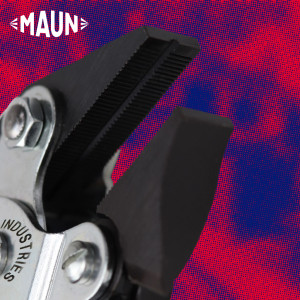Product details
Highly durable materials
These wire cutters are made from treated steel allows that have been zinc and phosphate finished. This treated steel makes the cutting edges very durable, and capable of lasting a lifetime of fence installing. The zinc and phosphate finishes also help to prevent corrosion, perfect in the outdoors and rugged environments.
Hardened cutting edges for the toughest metal wire
The cutting edges are machine-hardened to HRC 62-65 for increased durability. This ensures they can cut through very hard materials, including 2.5mm piano wire. The cutting edge is a variant of a diagonal cutting plier, allowing you to cut very close to a surface.
Maun vs Normal Cutters
Our cutters are more than just cutting pliers, and have a number of benefits vs regular cutters:
- They include a parallel gripping jaws including a longitudinal “V slot” which gives you better grip on fencing wire during repairs and maintenance.
- A fully open throat design of the parallel jaws allows continuous pulling when feeding wire along a length of fencing.
- The cutting jaws are capable of cutting through to 2.5mm Piano wire, 3mm hard wire, and 6mm soft wire, which outperforms the vast majority of equivalent tools.
- A compound action mechanism multiplies your hand force during cutting, so you can cut harder materials with less effort.
Why we harden our cutting jaws to HRC 62-65
Our cutting edges are hardened to HRC 62-65 to ensure they’re durable enough to withstand regular cutting of high tensile fencing wire (which is classed as “medium hard wire”).
How do the product features help during fencing installation/repair?
These fencing pliers have been designed especially for working with wire fencing, including the following unique features:
- 62-65 HRC Hardened cutting edges allow you to easily cut through fencing wire for the entire lifespan of the tool.
- It uses compound action mechanism to multiply your hand force, so cuts require less effort, and therefore it reduces hand fatigue. It also allows you to cut through harder materials.
- An open throat on the tool lets you feed wire through it, perfect for pulling wire through the length of a fence.
- The V slot within the jaw itself provides extra contact surface to the wire, improving your grip.
- The parallel-action jaws also help to ensure a greater contact surface area, reducing the slippage that you’ll get with scissor-type pliers.
Are they rust-proof?
The finishes applied to the pliers help to prevent corrosion and rusting. Over the lifetime of a product depending upon the level of use, the environment that the plier is used, and how the pliers are maintained and stored when not in use, in it is reasonable to expect that the finishes may eventually become worn and damaged.
Can these cutters handle all thicknesses of fencing wire?
These cutters can handle the majority of high tensile fencing wire with ease. In certain circumstances when working with very large diameter fencing, you may need multiple cuts to get a clean break, requiring the tool to be repositioned to the opposite side of the wire after the first cut.
How much do they weigh?
The standard Fencing Pliers weigh 510g, and the comfort grips version weighs 560g.
What types of fencing can these cutters be used on?
These cutting pliers are appropriate for the following types of fencing:
- Chain Link Fencing
- Welded Wire Fencing
- Barbed Wire Fencing
- Deer Fencing
- Chicken Wire Fencing
- Woven Wire Mesh
- Split Rail Fencing (although wire is not always used on a split rail)
- Electric fencing (Only when not live/isolated)
- Gabion Fencing
They don’t just cut through wire, and can be used in all aspects of the livestock fencing project, including removing old nails/staples, tightening new wire, and twisting wire to secure it.
Do you have to sharpen them?
The edges of diagonal cutting forms are not “sharp”; therefore, it is not a case of keeping the tool sharp. Where possible the cut should always be as close to the back of the jaw as it can be.
How should you clean and store them?
The best way to maintain the Fencing Pliers is to ensure that the tool is stored in a cool, dry place, that the product is thoroughly dried if it becomes wet during use and cleaned with a wet cloth, and then thoroughly dried if it becomes dirty during use.
Are there any other tips/best practices to be aware of?
- Do not use them as a hammer.
- Ensure the item is correctly stored, as referenced above.
- Do not use the cutter beyond its maximum specification.
- If wet, dry after use and before storing.


